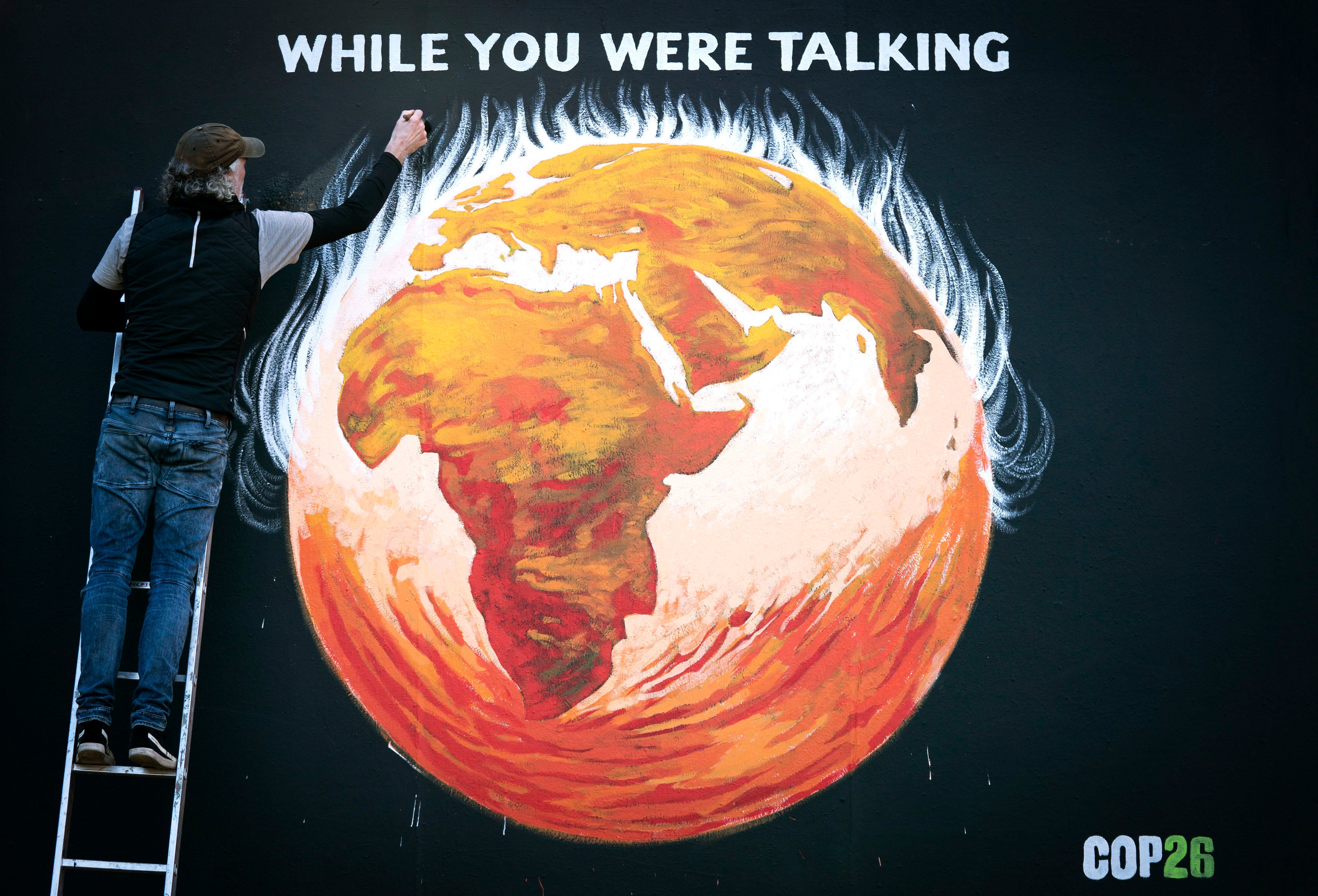Wealthy nations must accept climate action comes at a price
News that a long-promised $100bn a year in climate finance for poor countries will not be delivered until 2023 represents another blow for Cop26, writes Sean O’Grady, and is yet more evidence that the developed world is unwilling to put its money where its mouth is


In terms of what the presentational professionals call “the optics”, the Cop26 conference is already somewhat compromised. The probable absence of President Xi of China, representing the world largest polluter, and the definite no-show by President Putin of Russia, still a superpower in hydrocarbons, has taken a little of the prestige, if not glamour, off the proceedings. Boris Johnson, surveying the guest list, must be comforted that the Queen seems determined to attend, her sense of duty to nation and planet driving her on.
Still, even without such heavyweight personalities “in the room”, much useful and urgent work can still be completed at the conference. Even here, though, there is a sense that the Cop is an impending flop. No wonder, then, that Johnson’s latest progress report is that the chances of success in limiting emissions of greenhouse gases are “touch and go”. Apart from what we know is the energetic lobbying by nations such as Saudi Arabia, Japan and Australia to dilute the commitment to limit man-made climate change, the latest setback is that the £100bn in climate change aid to developing countries scheduled to start last year is not only late but has been pushed back even further, to 2023. In typically emollient fashion, the Cop26 president-designate Alok Sharma said: "This plan recognises progress, based on strong new climate finance commitments. There is still further to go, but this delivery plan, alongside the robust methodological report from the OECD [Organisation for Economic Co-operation and Development] provides clarity, transparency and accountability.”
There is, however, no way of disguising or denying the effects of climate change on some of the world’s poorest countries, effects that they simply do not have the resources to try to prevent or ameliorate. The £100bn a year is in fact a rather modest figure when the scale of the real-terms challenges facing these nations is understood. The changes are almost beyond comprehension: rising sea levels around the Maldives, Vanuatu and Bangladesh will displace millions of people; communities across sub-Saharan Africa are in peril of being wiped out by desertification and the expansion of the Sahara; fierce disputes about water supplies and the diversion of rivers and streams in the Nile, Tigris-Euphrates and the Jordan; increasing incidence of tropical storms in the Caribbean, and so on.
Any one of these phenomena should qualify as a global emergency; taken together they represent a threat to life on Earth, including in the prosperous west. The human consequences are broadly predictable: huge movements of “climate refugees”; armed confrontations over water supplies; the destruction of crops and fishing grounds; and more poverty, with all that entails. As the poorer nations are faced with further impoverishment, they well ask why they should sacrifice their own efforts to industrialise (as the west has long since done).
The most powerful argument for the rich nations of the world to protect their fellow human beings is that it is in the west’s own interests to do so, just as it is to limit the emissions of greenhouse gases and achieve a carbon-neutral world as soon as possible. It is, however, not an argument that can make itself, but in Johnson and his low-profile, softly-spoken Cop chair it has found some poor advocates.


Join our commenting forum
Join thought-provoking conversations, follow other Independent readers and see their replies
Comments